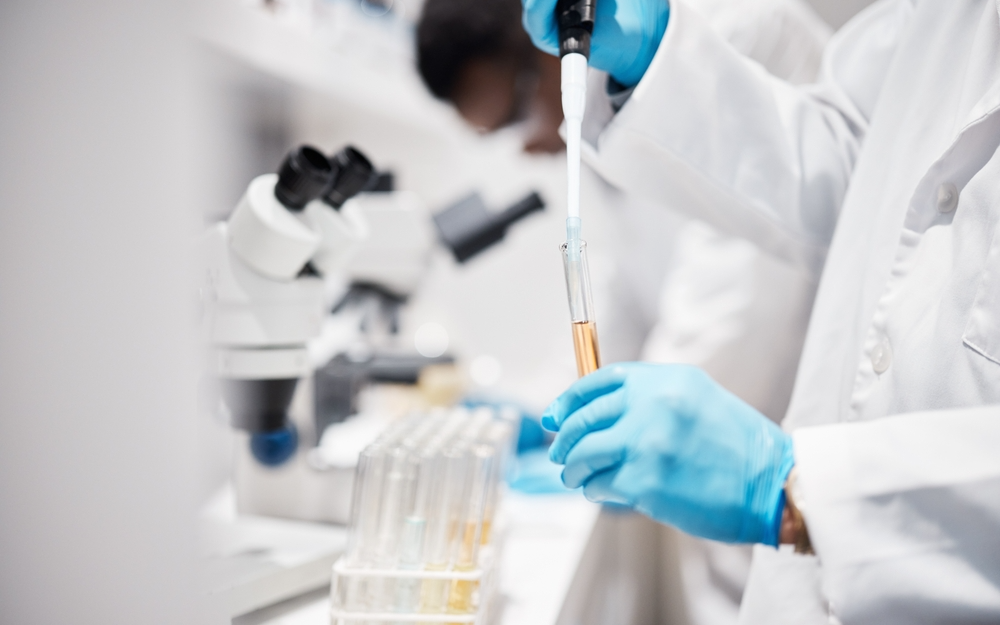A war of words over a benchmark that claims Eli Lilly has zero (out of ten) respect for human rights
By Chris Wheal
July 04, 2024

The World Benchmarking Alliance has produced a Social Benchmark report
A social benchmarking report into the world’s top 2,000 firms has found most pharmaceutical firms score above average but one – Eli Lilly – scores badly.
The questionable research effectively alleges that Lilly has zero respect for human rights. But the low score appears to relate to Lilly’s use of language in its public statements and not its actions. It is also based on 2022 data although published this week.
The World Benchmarking Alliance has produced a Social Benchmark. Most pharmaceutical companies score above average, with Roche and Azko Nobel in the top 10% of firms described as making “a concerted effort to respect human rights”.
Scores for top 2,000
Overall 30% of companies score between zero and two points out of 20 total possible points. The overall average score across all 2,000 companies is 4.5 out of 20. The average scores by measurement area are:
· Respect human rights, 2.4 out of 10
· Provide and promote decent work, 1.2 out of 6
· Act ethically, 0.9 out of 4.
The report says: “90% of companies are not even halfway to meeting fundamental societal expectations on human rights, decent work and ethical conduct. Efforts to respect human rights are evident among the top 10% of companies that surpass the halfway mark.”
15 pharma firms
PharmaLifeScience has extracted the following data from the social benchmark report on 15 major pharmaceutical firms. All score above average overall, except for Eli Lilly. Three others score below average in the ‘respect human rights’ category
| Company | Total (out of 20) | Respect human rights (out of 10) | Provide and promote decent work (out of 6) | Act ethically (out of 4) |
|---|---|---|---|---|
| Abbie Vie | 5.5 | 3 | 1.5 | 1 |
| Akzo Nobel | 13.5 | 9.5 | 2 | 2 |
| Astra Zeneca | 5 | 2 | 1.5 | 1.5 |
| Bayer | 13 | 8 | 3 | 2 |
| Bristol Mayers Squibb | 5.5 | 2 | 1.5 | 2 |
| Eli Lilly | 3 | 0 | 1.5 | 1.5 |
| Gilead Science | 6.5 | 2 | 2.5 | 2 |
| GSK | 9.5 | 6 | 1.5 | 2 |
| Johnson & Johnson | 10 | 5 | 2.5 | 2.5 |
| Novartis | 13 | 8.5 | 2.5 | 2 |
| Novo Nordisk | 7 | 3.5 | 1 | 2 |
| Pfizer | 6.5 | 3 | 1.5 | 2 |
| Roche | 11.5 | 7.5 | 2 | 2 |
| Sanofi | 13 | 9 | 2 | 2 |
| Takeda | 5.5 | 3 | 1.5 | 1 |
The World Benchmarking Alliance (WBA) says it gives companies the chance to respond before publishing its analysis. It says: “All companies then have the opportunity to review their assessment and engage with WBA via email or a one-on-one call to ask questions about their assessment as well as provide feedback and additional publicly available information. Comments and supplementary evidence are then reviewed by WBA analysts and integrated into the draft assessment to produce a final version.”
War of words
The WBA guidance notes make clear company commitments must use certain words and phrases to be accepted. Phrases such as ‘we respect’, ‘we commit to’, ‘we adhere to’, ‘we abide by’ are accepted but ‘we follow’, ‘we support’, ‘guided by’, ‘comply with’ or ‘striving to ensure rights are upheld’ are not. But the guidance notes say: "A commitment with both strong and weak wording is accepted."
Eli Lilly's Red Book – it’s code of business conduct – says: “We are committed to act legally and ethically, following both the letter and the spirit of the laws, regulations, policies, and procedures that govern our business.”
It’s human rights webpage says: “We strive to embed respect for human rights throughout our business activities and relationships.”
These words are not good enough for the WBA.
The WBA guidance notes also make clear:
· A commitment to or compliance with local/national laws alone is not accepted.
· A commitment to the 10 principles of the United Nations Global Compact (UNGC) and a modern slavery statement are not considered sufficient.
Eli Lilly’s response
Elie Lilly told PharmaLifeScience: “Lilly signed on to the United Nations Global Compact in 2009 and is committed to the UNGC’s Ten Principles on respecting internationally proclaimed human rights, labour, environment and anti-corruption.
“Each year we review and reaffirm our commitment to the 10 principles outlined by the UNGC and we provide an index of where to find information about our integration of the UNGC principles into our business strategy, culture and daily operations.
“We don’t believe this report fully reflects our commitment to human rights, which we strive to embed throughout our business activities and relationships. For more information read our 2023 Sustainability Report.”
WBA stands firm
A spokesperson for the WBA told PharmaLIfeScience: “Eli Lilly was assessed as a part of our Nature Benchmark in 2022, and the documents used for such assessment are from 2020/2021/2022. That means the company might very well have improved its performance since then, and/or disclosed more information and updated its policies.
“It is correct that Ely Lilly scores zero on Respect human rights and only three points overall, of which half is in decent work (supply chain health and safety commitments in supply chain, sex disaggregated data in workforce, gender diversity in company board) and half in acting ethically (commitment to protect personal data, anti bribery reporting, policy on lobbying and disclosure of lobbying expenses).
“For example, during the assessment period, Eli Lilly had a statement on its webpage that it supports the UN Global Compact’s ten principles on respecting internationally proclaimed human rights. However, the word 'support' is too weak to be considered as a formal policy commitment and it does not commit to respecting all four of the human rights the International Labour Organisation (ILO) has declared to be fundamental rights at work, which are forced labour, child labour, discrimination in respect of employment and freedom of association and right to collective bargaining.
“During the benchmark research cycle, WBA engaged with all companies assessed including Eli Lilly for companies to provide feedback. WBA reached out to Eli Lilly in July 2022 and they did not provide feedback on the draft assessment we shared.”
Criteria in detail
The human rights elements the WBA uses to assess companies are:
1. Commitment to respect human rights: The company publicly commits to respecting all internationally recognised human rights across its activities. The company has a publicly available policy statement committing it to respect human rights, which is approved by the highest governance body.
2. Commitment to respect the human rights of workers: The company publicly commits to respecting the principles concerning fundamental rights at work in the eight ILO core conventions, as set out in the ILO Declaration on Fundamental Principles and Rights at Work. It also has a publicly available policy statement committing it to respect the human rights of workers in its business relationships. The company has a publicly available policy statement committing it to respecting the human rights that the ILO has declared to be fundamental rights at work, which is approved by the highest governance body. The company has a publicly available statement of policy that expects its business relationships to commit to respecting the human rights that the ILO has declared to be fundamental rights at work.
3. Identifying human rights risks and impacts: The company proactively identifies its human rights risks and impacts. The company describes the process(es) to identify its human rights risks and impacts in specific locations or activities covering its own operations. The company describes the process(es) to identify its human rights risks and impacts in specific locations or activities through relevant business relationships.
4. Assessing human rights risks and impacts: Having identified its human rights risks and impacts, the company assesses them and then prioritises its salient human rights risks and impacts. The company describes its process(es) for assessing its human rights risks and discloses what it considers to be its salient human rights issues. This description includes how relevant factors are taken into account, such as geographical, economic, social and other factors. The company publicly discloses the results of its assessments, which may be aggregated across its operations and locations.
5. Integrating and acting on human rights risks and impacts: The company integrates the findings of its assessments of human rights risks and impacts into relevant internal functions and processes by taking appropriate actions to prevent, mitigate or remediate its salient human rights issues. The company describes its global system to take action to prevent, mitigate or remediate its salient human rights issues, AND this includes a description of how its global system applies to its supply chain. The company provides an example of the specific conclusions reached and actions taken or to be taken on at least one of its salient human rights issues as a result of assessment processes in at least one of its activities/operations in the last three years.
6. Engaging with affected and potentially affected stakeholders: As part of identifying and assessing its human rights risks and impacts, the company identifies and engages with stakeholders whose human rights have been or may be affected by its activities. The company discloses the categories of stakeholders whose human rights have been or may be affected by its activities. The company provides at least two examples of its engagement with stakeholders whose human rights have been or may be affected by its activities (or their legitimate representatives or multi-stakeholder initiatives) in the last two years.
7. Grievance mechanisms for workers: The company has one or more channels/mechanisms (its own, third party or shared) through which workers can raise complaints or concerns, including in relation to human rights issues. The company indicates that it has one or more channel(s)/mechanism(s), or participates in a shared mechanism, accessible to all workers who may be adversely impacted by the company (or individuals or organisations acting on their behalf or who are otherwise in a position to be aware of adverse impacts), to raise complaints or concerns.
8. Grievance mechanisms for external individuals and communities: The company has one or more channels/mechanisms (its own, third party or shared) through which individuals and communities who may be adversely impacted by the company can raise complaints or concerns, including in relation to human rights issues. The company indicates that it has one or more channel(s)/mechanism(s), or participates in a shared mechanism, accessible to all external individuals and communities who may be adversely impacted by the company (or individuals or organisations acting on their behalf or who are otherwise in a position to be aware of adverse impacts), to raise complaints or concerns.
Other factors in the report
Overall, the report said: “Nearly all companies (98%) fail to disclose their gender pay gap among employees across all countries of operation. In addition, 95% of companies do not publish the health and safety data of their workers such as the number and rate of work-related injuries and fatalities.
“Nearly 65% of companies fail to publicly commit to protecting the personal data of their employees and consumers, and 96% of companies do not publish a global statement about the types of user information they collect, share or access.
“With regards to responsible tax fundamentals, over 90% of the 2,000 companies do not disclose their corporate income tax payments for each jurisdiction in which they reside.”
You decide
Should Eli Lilly strengthen its human rights commitment or is this just a game of words? Tell us your view.
Note. PharmaLIfeScience tried to contact the other firms with below-average scores. None sent statements.







.png)